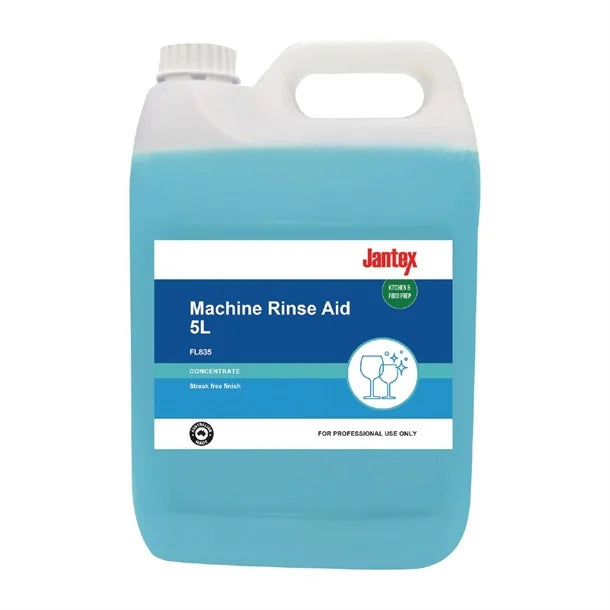When operating a busy kitchen—whether it's a restaurant, café, bar, or catering service—your commercial dishwasher plays a critical role in maintaining hygiene and workflow. One question that frequently comes up is:
“Do I really need to use rinse aid in my commercial dishwasher?”
The short answer: Yes, you should — and here’s why.
In this blog, we’ll explain:
-
What rinse aid is
-
Why it’s essential for commercial dishwashers
-
What happens if you don’t use it
-
Pros and cons to consider
💧 What Is Rinse Aid?
Rinse aid is a specialized liquid additive used in dishwashers to improve drying performance and prevent water spots and streaks. It works by reducing the surface tension of water, which allows it to sheet off dishes and glassware rather than forming droplets.
In commercial settings, rinse aid is especially important for:
-
High-volume dishwashing
-
Delicate glassware
-
Spotless presentation
✅ Benefits of Using Rinse Aid in a Commercial Dishwasher
1. Faster Drying
Rinse aid accelerates the drying process, helping plates, cutlery, and glasses come out dry and ready to use or stack — essential during peak service times.
2. Streak-Free & Spot-Free Finish
By reducing water droplets, rinse aid prevents mineral deposits and cloudy residue, especially in areas with hard water. This is crucial for presentation, particularly on glassware.
3. Improved Hygiene
Less moisture = less opportunity for bacteria and mold to grow on damp surfaces. Rinse aid contributes to better overall cleanliness.
4. Energy Efficiency
Faster drying reduces the need for additional heat or hand-drying, which can lower energy usage and labour time.
⚠️ What Happens If You Don’t Use Rinse Aid?
Skipping rinse aid might not break your dishwasher, but it can lead to several issues that affect both appearance and operations.
🔻 Disadvantages of Not Using Rinse Aid:
-
Longer Drying Times: Water will sit on dishes and air-drying will take longer, slowing down service.
-
Water Spots & Streaks: Dishes, especially glasses and cutlery, may come out looking dirty even when they’re clean.
-
Higher Water Staining: In hard water regions, limescale and mineral deposits will be more visible.
-
Re-washing or Polishing Needed: Staff may have to manually dry or polish glassware, adding to your labour cost.
🧼 Can I Rely on Detergent Alone?
Commercial dishwasher detergents are designed to remove food and sanitize, but they don’t provide the same drying and finishing benefits as rinse aid. They work best in tandem with a rinse aid, especially in high-speed or short-cycle dishwashers where drying time is minimal.
Some eco and all-in-one tablets claim to combine these effects, but they often fall short in commercial settings where speed and appearance matter most.
💡 Pro Tip: How to Know If You’re Low on Rinse Aid
Most commercial dishwashers have an indicator light or sensor that alerts you when rinse aid is low or empty. Keeping it topped up ensures consistently clean results — and helps protect your machine from mineral buildup.
🏁 Final Verdict: Yes, You Need Rinse Aid
If you care about speed, cleanliness, efficiency, and customer satisfaction, using rinse aid in your commercial dishwasher is essential. The benefits of spotless drying and faster turnaround far outweigh the minor additional cost.
Skipping rinse aid can slow down your workflow, damage your reputation with cloudy glasses, and even lead to more wear on your machine.










